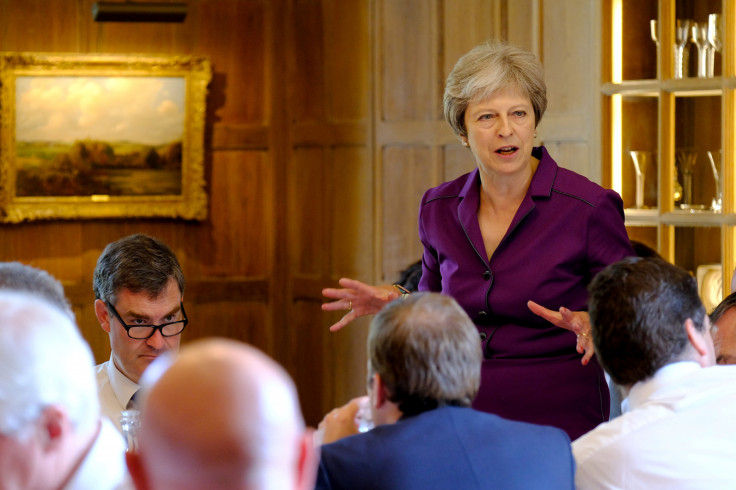May claims victory as UK weighs up her 'soft Brexit' plan
Britain's prime minister presents her solution to the seemingly intractable problems of Brexit.

Britain's prime minister is claiming victory in her bid to unite her fractious Cabinet behind her Brexit policy, but many hurdles lie ahead.
Her Friday night deal that is widely seen as leaning towards a "soft Brexit" will now be considered by a country basking in record breaking sunshine and obsessed by the FIFA World Cup and the England teams progression to the semi-finals.
This is a sell-out to the global corporates, as it was during Maastricht. The Tory Eurosceptics are a waste of space.
Theresa May is seeking to squelch public dissent from Conservative Party colleagues by warning ministers she will no longer tolerate public criticism of government policy, now that the Cabinet has backed her following a 12-hour meeting that ended late Friday night.
In widely broadcast comments, May says the Cabinet endorsed plans for a future free-trade deal with the European Union that would keep some close ties to the bloc even as it ends freedom of movement between Britain and the EU.
It's unclear how EU negotiators will react to the plan.
The proposal has angered some hard-line Brexiteers who favour a more complete break with the EU.
But former UKIP leader Nigel Farage attacked the Prime Minister's blueprint and said the plan amounted to a "sell-out to global corporates" and would do nothing for the 90 percent of British firms which do not export to Europe.
He tweeted: "This is a sell-out to the global corporates, as it was during Maastricht. The Tory Eurosceptics are a waste of space."
He went on to denounce the "Brexiteers in the Cabinet (who) don't have a principle between them."
© Copyright IBTimes 2025. All rights reserved.





















